Sick And Sin: The Allure Of Lace
Published on July 30th, 2011 in: Feminism, Issues, My Dream Is On The Screen, Teh Sex, TV |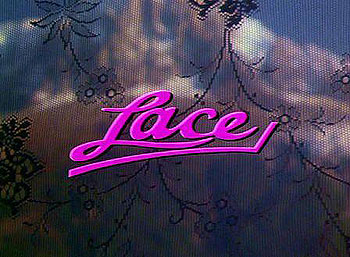
“Incidentally, which one of you bitches is my mother?” has become an iconic piece of television history, especially to anyone who grew up in the 1980s. This infamous line of dialogue—spat, rather than spoken, by Phoebe Cates—from the 1984 TV miniseries Lace, is hardly the most ridiculous thing that takes place during one of the most notorious television miniseries.
A Day On The Tube: 35 Clown-Hating, Sponsor-Trashing, Kid-Riot Years With Wallace And Ladmo
Published on July 30th, 2011 in: Comedy, Issues, My Dream Is On The Screen, Retrovirus, TV |By Cait Brennan
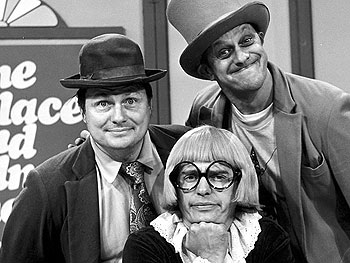
From left to right:
Wallace, Gerald (the “spoiled rich kid”), and Ladmo
In the spring of 2011, PBS’s acclaimed series Pioneers Of Television presented a special on the lost world of locally-produced kids’ TV shows. The names and faces were familiar, giants like Fred Rogers, Willard Scott as Bozo, Romper Room, Bill Cosby, Jim Henson. And among them—taking up almost half of the hour-long show—were names unfamiliar to most of the nationwide audience, but known and beloved in the Southwest for generations: The stars of the subversive, satirical sketch-and-cartoon show Wallace and Ladmo. On the air five days a week for a staggering 35 years, the show broke every rule in the kids’ TV book, and earned a legion of fanatical fans.
(more…)
How You Can’t Do That On Television Changed Kids’ Television
Published on July 30th, 2011 in: Canadian Content, Comedy, Issues, My Dream Is On The Screen, Retrovirus, TV |By Emily Carney
Like many kids, I was obsessed with Monty Python’s Flying Circus growing up. Python was featured on America’s Public Broadcasting Service (PBS), usually sandwiched between Doctor Who (with Tom Baker!) and a terrible British sitcom called ‘Allo ‘Allo. It had a great classically-rooted theme song, and was completely hilarious.
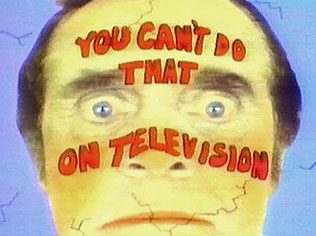
It should be explicitly stated, however, that Python was not, in any way, shape, or form, a kids’ TV show. It presented a lot of adult situations (“I LIKE TITS!” is actually a quote by Terry Jones, the Welsh member of the troupe). I would NEVER let my nephew and niece watch Python, as I don’t want to be collared for child abuse. So, when my parents were actually watching me, I’d switch the channel to Nickelodeon (a relatively new cable offering at the time) and watch the Canadian TV show, You Can’t Do That On Television. YCDTOT at its best was the preteen version of Python, and possessed its own brand of surreal, controversial humor. It also had a great attention-getting classical theme song.
(more…)
The Crystal Maze And The Magic Of Richard O’Brien
Published on July 30th, 2011 in: Issues, My Dream Is On The Screen, Retrovirus, TV, We Miss The Nineties |By Paul Casey
The Crystal Maze was a game show which aired on British television in the 1990s; for four of its six series it was presented by Richard O’Brien, who as you may know, wrote that grand love letter to Sci-Fi and B-movies, The Rocky Horror Show, as well as its film adaptation.
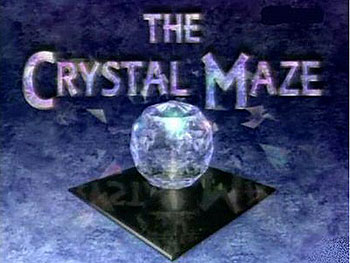
As host Reckless Rick, O’Brien guided a group of frustrated working stiffs through themed “zones”; the goal was to capture the titular crystals in order to win a trip to a B&B 30 minutes up the road (or something equally miserable). Each zone came with its share of mental, physical, skill, and mystery challenges. Reckless Rick ain’t here, I’m afraid, so I’m your guide. And if you’re smart, or very, very lucky, you will discover wonderful televisual prizes. GOGOGO!
From True To False And Back Again: Go Ask Alice
Published on July 30th, 2011 in: Issues, My Dream Is On The Screen, Retrovirus, TV |“This motion picture is based on the authentic diary of a 15-year-old American girl. The only alterations have been those necessitated by considerations of length and acceptability for family viewing.”
—Opening credits of Go Ask Alice
Fab Films, Terrible TV: When “Based On The Movie” Goes Wrong
Published on July 30th, 2011 in: Cartoons, Issues, Movies, My Dream Is On The Screen, TV |By Cait Brennan
Nothing succeeds like success, especially in Hollywood, California, USA. The vast echo chamber that is the Hollywood establishment loves nothing more than to recycle some easily packaged, cloyingly familiar property into remakes, reboots, reimaginings, musicals, ancillary merchandise, and Spider-Man Ham Sandwiches. Although the practice has faded in recent years, for much of TV’s life, enterprising producers have been adapting hit films into television shows—shows that were often less than successful. Here’s a small sampling of the worst film-to-TV adaptations.
(more…)
Saddle Shoes and Winnipeg Tuxedos: Fashion In Twin Peaks
Published on July 30th, 2011 in: Issues, My Dream Is On The Screen, TV, We Miss The Nineties |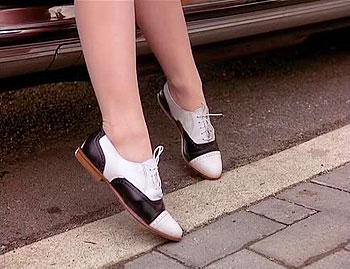
Watching Twin Peaks from a remove of over twenty years conjures a rush of emotions: The tragedy of an innocent’s brutal murder, the suspense of unraveling the mystery, the fear of the uncanny, and the occasional revulsion at the wardrobe. Holy angora, viewers may think. Did people actually dress like that in the early ’90s?
Sleaze-O-Rama: Remembering the Halcyon Days of the Daytime Talk Show
Published on July 30th, 2011 in: Issues, My Dream Is On The Screen, TV, We Miss The Nineties |By Jesse Roth
The conclusion of Oprah‘s 25-year run on daytime television was heralded as the end of an era in several respects. Never again are we likely to see a media figure with as much power and widespread appeal as the mighty O. She was the figurehead of a special daytime ruling class, one that was seemingly overthrown by changing tastes long before she was willing to abdicate the throne. Despite her attempts to distance herself from her early years, enough people remember Oprah as a proud member (along with the likes of Geraldo Rivera and Morton Downey, Jr.) of the inaugural class of daytime sleaze, perverting a genre once owned by the legendary Phil Donahue. Though the daytime talk show genre is still kicking around the airwaves, its power and impact has been greatly reduced, crushed by the one-two punch of reality television and social media.
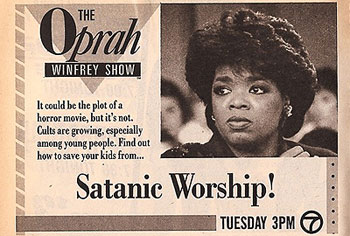
Skating The Edge With Aeon Flux
Published on July 30th, 2011 in: Cartoons, Feminism, Issues, My Dream Is On The Screen, Science Fiction, TV, Underground/Cult, We Miss The Nineties |By Kai Shuart
At first blush, television seems a grossly distorted lens through which to examine philosophical questions. Every television show that comes through our tablets, computers, and (decreasingly) television sets is so overblown, and, well, downright Hollywood, how can it be the catalyst for examining the deeper questions of life? It’s entertainment; it’s only supposed to hang around between the time the opening credits start and the closing credits end.
(more…)
A Manufactured Image With No Philosophies: The Rock Band Sitcom
Published on July 30th, 2011 in: Issues, Music, My Dream Is On The Screen, TV |By Cait Brennan
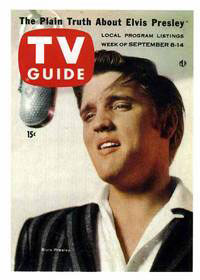
It’s no coincidence that television and rock and roll came of age together. Starting in the American ’50s, a demographic tsunami of young people eager to embrace new technologies and new sounds launched one hell of a cultural transformation. Postwar advances in affordable electronics put television’s sitcoms in every home. Cultural cross-pollination put rock and roll records into the hands of eager teen listeners. When that revolutionary new sound met that unprecedented distribution medium, it’s only natural that those two great tastes ended up tasting great together.
(more…)